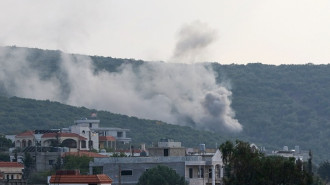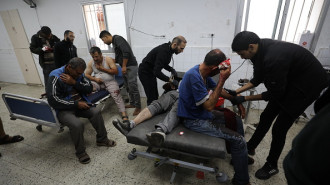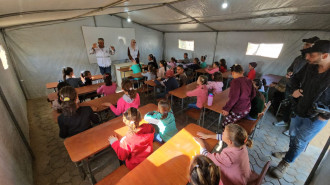Damascus and Kurdish authorities compete for wheat as harvest season begins
The Kurdish-led Autonomous Administration of North and East Syria (AANES) announced its wheat purchase prices on Monday, kicking off the annual competition with authorities in Damascus to secure the essential crop.
The AANES said that it would buy wheat from farmers at 2,200 Syrian pounds per kilo (US$0.55) and that wheat harvesting would begin on 25 May.
Earlier in the month, the Syrian regime announced for its part that it would be purchasing wheat at just 1,700 Syrian pounds per kilo (US$0.42) but that it would pay a premium to farmers from AANES territories who break regulations to sell wheat to Damascus.
The AANES currently dominates Syria's breadbasket and over two-thirds of the country's wheat is planted in areas under its control. Each year, both the Syrian regime and the AANES compete to woo farmers in order to secure as much of the grain as possible.
"The AANES and the Syrian government have competed over the procurement of wheat for several years now, trying to outbid one another by raising their procurement prices," Benjamin Fève, a researcher with the economic publication the Syria Report, told The New Arab.
The AANES forbids farmers within its territory from selling to Damascus, though some continue to do so.
"Since 2020, the AANES has put in place measures effectively banning anyone from transporting wheat and barley in regions located outside of its control without first getting approval. It's unclear how these measures work and to what extent they prevent farmers from selling to the government in Damascus," Fève added.
Salman Barudo, the AANES co-chair of Economy and Agriculture, said that higher pricing and new regulations will prevent farmers from selling to the regime.
Wheat is an essential crop in Syria, where a deteriorating economy has made bread a lifeline for much of the population.
Domestic demand for the crop far outstrips production, and a combination of factors, including global food and gas prices, has undercut yields. Both the AANES and the regime import wheat in order to cover local needs.
Syria's wheat production in 2021 was the lowest in 50 years, according to the UN's Food and Agriculture Organisation, which urged "immediate action to support the agricultural sector."
The AANES’ expected this year’s harvest to be low, similar to last year.
“We are expecting between 850,000 and 900,000 tons this year. Similar to last year, the [yield] is very low due to the lack of rain and drought,” Barudo told The New Arab.
Rising costs of inputs, especially after Russia's invasion of Ukraine, have further impacted Syria's agricultural sector and sent food prices soaring.
Humanitarian conditions have been worsening in Syria since 2019, but the rate of decline has accelerated in recent months.
The World Food Programme (WFP) said that food prices in Syria are "at their highest level" since 2013 and have increased 800 percent in the last two years.
The organisation further warned that without increased funding it would have to cut food aid to the country. It already is planning a reduction in its food baskets, leaving people with just over half of their recommended daily calorie intake.
Increasing inflation has further impacted civilians' livelihoods, with the Syrian pound trading at 4,000 pounds to the dollar on Monday, the lowest rate this year. Prior to 2011, US$1 was equivalent to around 50 Syrian pounds.
This article was updated to include the comments of the AANES co-chair of Economy and Agriculture.





 Follow the Middle East's top stories in English at The New Arab on Google News
Follow the Middle East's top stories in English at The New Arab on Google News


